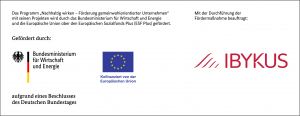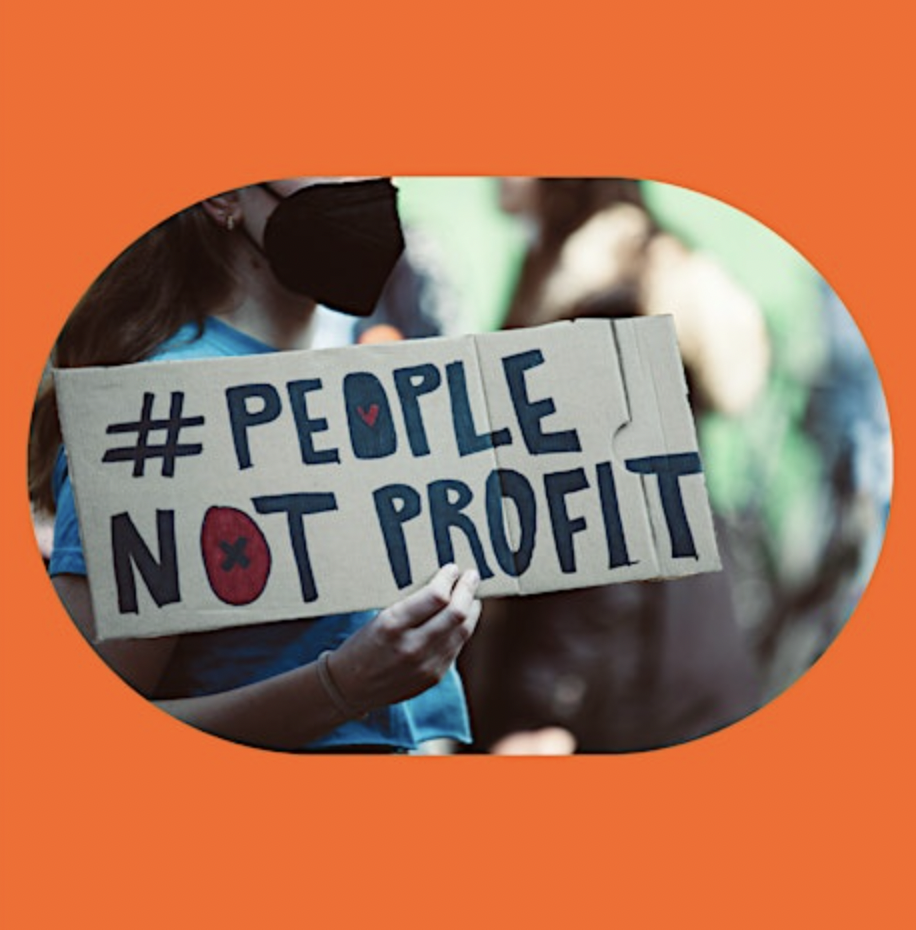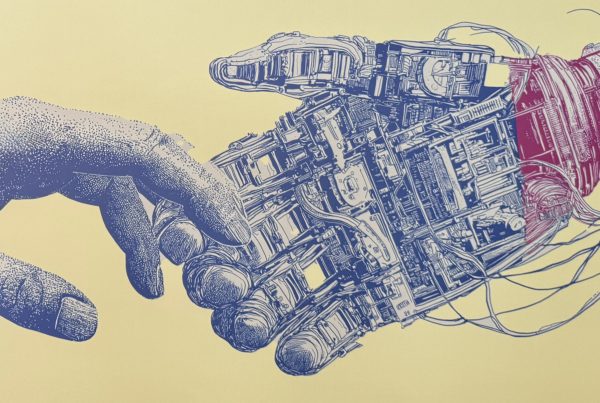Reflections from Platform Coop’s Online Workshop, September 18th, 2025
On September 18th, around 20 participants joined Platform Coop’s online workshop Building the Economy We Want. From Berlin to Spain to Brazil, the group brought together a diverse set of voices and experiences. Together, we explored what unites the different forms of organizing within the Economy of the Common Good, compared legal models, and shared resources that can help us design sustainable, impactful businesses for good.
Why We Need an Economy of the Common Good.
Now More Than Ever.
When trying to describe the moment in time we live in it’s hard to not drown in negativity: climate change, biodiversity loss, deepening social inequality, fragile democracies, and a digital economy dominated by extractive business models is the reality we are all facing – just with the difference that many people in the West might not feel the consequences yet. Traditional economic structures with their narrow focus on growth and shareholder profit are struggling to provide solutions that sustain life on this planet.
That’s why the idea of an Economy of the Common Good is gaining momentum for many people across the globe. It proposes a shift in the DNA of economic activity: away from maximizing private profit and towards nurturing the conditions for human and planetary wellbeing. Here is an overview of reasons shared by the workshop participants:
Why now?
- Climate urgency: The current economic model accelerates ecological breakdown. A common good economy prioritises circularity and regenerative practices & a reliable and honest footprint calculations.
- Inequality & exclusion: Wealth and power are increasingly concentrated in the hands of a few. Models that emphasise inclusivity and fair distribution of resources are urgently needed to rebalance power.
- Democracy under pressure: When economic power is detached from people’s voices, democracy weakens. Cooperative, purpose-driven, and commons-based organisations embed democracy in the economy itself.
- Digital sovereignty: Big Tech monopolies extract data and attention for profit. Alternatives like platform coops and DAOs experiment with models of shared digital ownership. Decentralised social networks such as Mastodon allow users to connect without capitalising on people’s data.
- Resilience in crises: Pandemics, wars, and financial collapses reveal the fragility of centralised systems. Community-rooted, purpose-driven forms of organising spread risks and strengthen local resilience.
In short: we cannot afford business as usual. The economy of the common good is not a utopian side-project, but rather a pragmatic response to today’s realities.
Legal and Organisational Forms
We then discussed how these values can be embedded into different legal forms. Andreas Arnold and Ela Kagel have prepared this input and shared it with participants.
1. Cooperative (e.G. in Germany, worldwide equivalents)
- Purpose: Serve members’ economic, social, or cultural needs
- Ownership: Collective; each member holds a share, the number of shares a member holds has no impact on their voting power
- Governance: Democratic (“one member, one vote”), the membership elects their leaders (the board) and meet annually at the General Assembly. The governance is all about balance of power.
- Impact: Strong local and social impact; profits reinvested or shared among the membership via dividends or member-profit-programs
- Key Feature: Business success aligned with community wellbeing
2. Non-profit Association (e.V. in Germany, NGO equivalents)
- Purpose: Advance a social, cultural, or political mission
- Ownership: No private ownership; resources tied to mission
- Governance: Member assemblies, General assembly once a year + elected boards, like in a coop.
- Impact: High societal value; profits cannot be distributed
- Key Feature: Voluntary, mission-driven, community-based
3. Purpose Organisation
- Purpose: Protect mission long-term; profits serve purpose
- Ownership: Partly steward-owned, often with external veto (e.g. Purpose Foundation)
- Governance: Corporate structure + purpose safeguards
- Impact: Prevents hostile takeovers and mission drift
- Key Feature: Hybrid of company and foundation
- Example: Ecosia
4. DAOs (Decentralised Autonomous Organizations)
- Purpose: Collective, often global, digital communities
- Ownership: Tokens represent participation, voting rights, and value share
- Governance: Smart contracts encode rules. Majority token holders have higher voting power, which is an often critiqued aspect of DAOs.
- Impact: Transparent and inclusive but often legally unprotected
- Key Feature: Internet-native coordination with high potential for democratic governance
5. Social Enterprise (UG or GmbH in Germany, worldwide equivalents)
- Purpose: Combine social/environmental mission with business viability.
- Ownership: Founders/investors, but mission-oriented.
- Governance: Flexible corporate models with social safeguards.
- Impact: Measurable social/environmental outcomes alongside financial returns.
- Key Feature: Independent from donations; scalable market-based impact.
Additional Models Discussed
- Foundations: Long-term mission protection through asset dedication; can own companies (e.g. Stadtbodenstiftung in Berlin).
- Trusts: Common law structures (UK, US, etc.) that hold assets for a defined purpose; Patagonia for instance transferred ownership to a purpose trust. Or take the example of the Community Land Trusts. In Germany, „both“ forms might even be called a foundation as „„Um eine Stiftung zu gründen, stehen dem Stifter zwei „Rechtsformen“ zur Verfügung: Die rechtsfähige Stiftung sowie die treuhänderische Stiftung.“ The latter we understand to be the trust. So there are various nuances across jurisdictions.
- Steward Ownership: Ownership rights tied to mission rather than investors. Voting rights remain with stewards, while profits primarily serve reinvestment or mission.
- DisCO (Distributed Cooperative Organization): Feminist, care-centered alternative to DAOs, embedding value accounting for reproductive and care work. Check out disco.coop.
- Zoöp Model: Adds a board seat for non-human life, ensuring ecological concerns are represented. Check out zoop.earth
- Community Land Trusts: Community-based ownership of land for long-term affordability and collective benefit. More infos on CLTs.
- Public-Private Partnerships & Hybrid Models: As seen in projects like Haus der Statistik (Berlin).
Resources Shared
- Circles UBI – A blockchain-based basic income experiment
- ICA – International Cooperative Alliance
- Purpose Foundation
- SEND – Social Entrepreneurship Network Germany
- World After Capital – Albert Wenger
- The Preston Model – Community Wealth Building in the UK
- DisCO Manifesto
- Guerrilla Media Coop
- Zoöp Model
- Patagonia Purpose Trust
- EU SME Defininition
- The DAO hack
- Cooperative ESOP model (as recently launched in Slowenia)
- Sign up to our newsletter
Chat Highlights from the Call
- Global connections: Participants from Brazil, Spain, Berlin, Frankfurt, Denmark – showing the truly international nature of this movement.
- Key discussion threads:
- How to defend against malicious actors and empower people.
- The need to redefine profit and move toward people, planet, profit.
- Calls for clarifying purpose and measuring impact with tools like carbon pricing.
- Curiosity about DAOs adopting one-member-one-vote principles and also the need to advance DAOs into a self-empowering & democratic platforms.
- Reflections on forms of long-term sustainability.
- How to implement democracy into an organisation by design?
Conclusions
The workshop highlighted both the diversity of organisational models and the common DNA that unites them. Whether through coops, DAOs, foundations, or steward-owned companies, the challenge remains the same: designing structures that balance purpose, impact, co-ownership, sustainability, and democratic participation.
The conversation continues and we invite everyone to keep exploring and experimenting with the models that will help us build the economy we want. Working towards the economy of the common good means:
- Embedding fairness, democracy, and sustainability into daily practice
- Choosing structures such as coop, association, purpose org, DAO, DisCO, Zoöp that protect mission and empower stakeholders
- Measuring what matters: ecological impact, inclusivity, community wellbeing, autonomy and resilience
- Reclaiming the digital commons and strengthening data sovereignty
- Building alliances across borders and advocating for supportive policy
This transition is not abstract. It is already happening, as we can see by the many living examples we have discussed in this workshop. By aligning our choices and starting collaborations based on shared values, we strengthen the foundations of an economy that serves people and planet.
Let’s not wait for permission to build the Economy We Want!
Image courtesy: Markus Spiske at Unsplash





